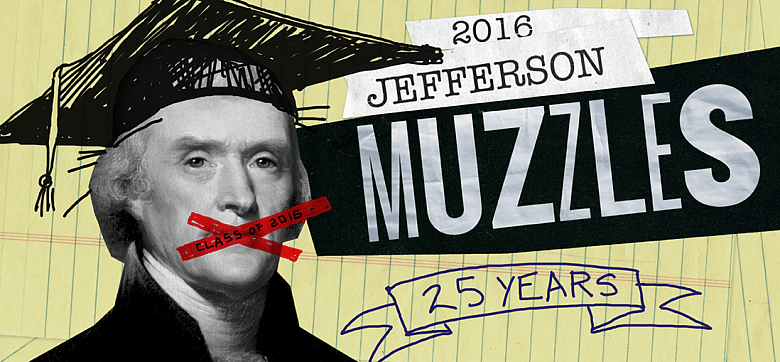Amherst, Harvard, Williams cited for ‘muzzling’ speech

BOSTON – Three prestigious Massachusetts colleges were singled-out for stifling free speech on campus over the past year, earning them "muzzles" from the Thomas Jefferson Center.
Amherst College, Harvard University and Williams College were among 50 U.S. schools that curtailed students' First Amendment rights in 2015, drawing Jefferson Muzzle Awards from the Charlottesville, Virginia-based organization. The offenders weren't just administrators, organizers behind the tongue-in-cheek awards said. In some cases, students themselves blocked the free expression of ideas.

